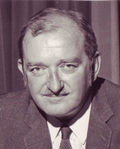Guidelines to Present Yourself as a Professional!
The following excerpt is from a longer document submitted by my father in 1976 called “Should Creative Directors Be Middle Class? This extract includes guidelines for said Creative Directors, but in my view, may be applicable to any professional who wants to present themselves as such, and remains highly appropriate today, over thirty years after writing.
 “…Somebody once said that you don’t have to be working class to write successful fiction or non-fiction about them”. Somebody else said that “twenty years ago you couldn’t get a job in show business if you had an accent, today you can’t get a job in show business unless you have one”.
“…Somebody once said that you don’t have to be working class to write successful fiction or non-fiction about them”. Somebody else said that “twenty years ago you couldn’t get a job in show business if you had an accent, today you can’t get a job in show business unless you have one”.
Relating both quotations to our business, I believe the former is true, the latter no longer true.
I do not know the agency working environment in the U.S.A. well enough to make comparisons. It may be possible there to talk like a New York cabbie and dress like a plumber and still command respect and have authority. I doubt it. I know it is not easy here. At the same time, I would emphasize that stylish, even way out dressing of the right type has certainly not done Ronnie Kirkwood any harm. Nor has the “Mr. Ordinary” speech style of Jeremy Bullmore done him any harm either. Charles Saatchi is an exceptional case. He is a successful proprietor and has made it despite his excruciating elocution.
So in what ways can our Creative Directors give themselves more stature, more maturity, more evidence of leadership, more authority without diminishing their ability, without losing their individuality, without going for a 12 month adult training course at Eton or Harrow? I would suggest that the following guidelines be considered for use by them when applicable, particularly in all conference with others and in all presentations to others.
They are based on the premise that if a carpenter only talks well about the woodwork job he is doing for the customer, he is seen as a skilled tradesman and treated as a tradesman. If he talks well about it but periodically in dialogue stands back from it, demonstrating a wider understanding of the environment in which the finished job will be, he is still seen as a skilled craftsman but is treated as a professional and a mentor.
GUIDELINES
Be Wise
e. g. Stand back-and comment on the media in which your advertisements will appear. The 20 year old prodigy ITV and its precocious relationship with the 250 years old national press.
Be aware of the wisdom of others
Quote the words of the great to make a point. Be in touch with culture
Be not a bore but be not afraid to use it.
Many are the clients who would have our voice-overs working like Figaro.
Be aware of Communications as both a giant art and giant science
Matthew, Socrates and Shaw, Roosevelt, de Gaulle and Churchill, Michaelangelo, Degas and Picasso , Edison, Marconi and Baird, Beethoven, Strauss and Baccarat, Burnett, Bernbach and Ogilvy. All teach us lessons in communications.
Be audaciously confident without being absurd
Not aggressive but sure within existing evidence.
Be equal
You are an expert on your subject, you are not inferior nor superior to the audience you are addressing. You are human, relaxed and professional.
Be aware of history
Times move fast. You remember campaign backgrounds, market backgrounds and social backgrounds whether your experience ranges back five years or twenty-five years.
Be travelled
We are marketing products in the UK, in Europe, in the world. You have travelled with your eyes open. What you see is interesting and often relevant.
Be one with intelligent folk expertise
Grass roots knowledge can often be compatible with research. Yorkshire wisdom, Lancashire thrift and Cockney opportunism are probably inimitable, certainly endearing and sometimes useful.
Be not without wit
Dry, salty, swift or sophisticated.
Be interesting
In colour, in perfect tone! At your peril, be otherwise.
Be professionally enthusiastic
Not amateurishly excited or introspectively entrenched.
Be not alone
Nor be just a member of the team. Be the affectionately respected, special member of the team!
Be like a good doctor
Nobody can describe symptoms as well as the patient.
Be an experienced impresario
Listen carefully to the “front of the house” man – he may have a good idea for the Second Act.
Be yourself
Within the context of these guidelines, be yourself. Work on yourself. You are the best raw material you have got.”
By André Newton-Carter
Vice Chairman of Leo Burnett LPE Ltd 1969 – 1976
